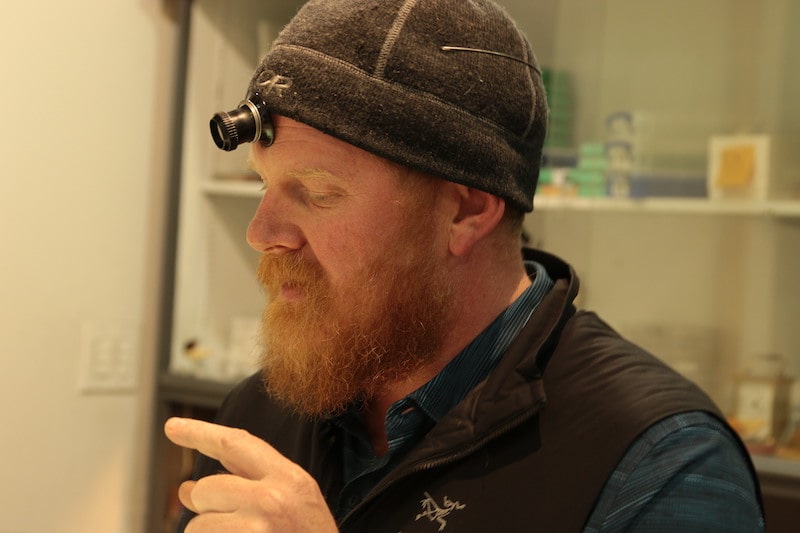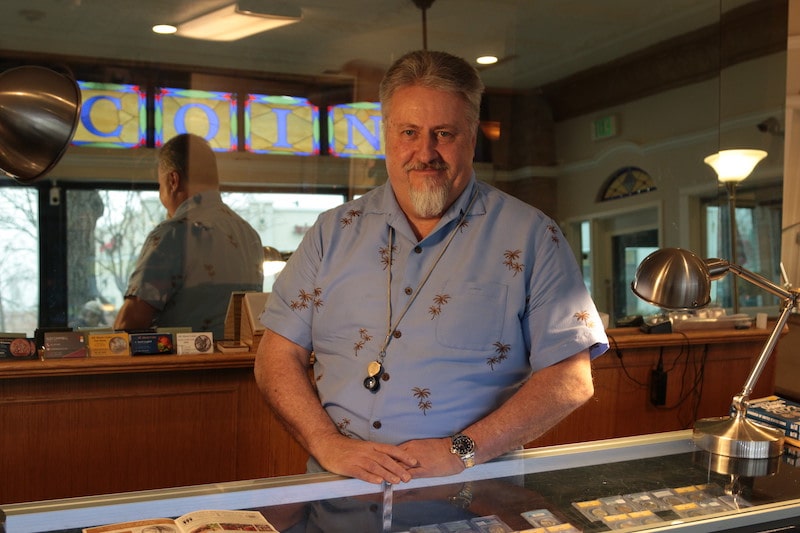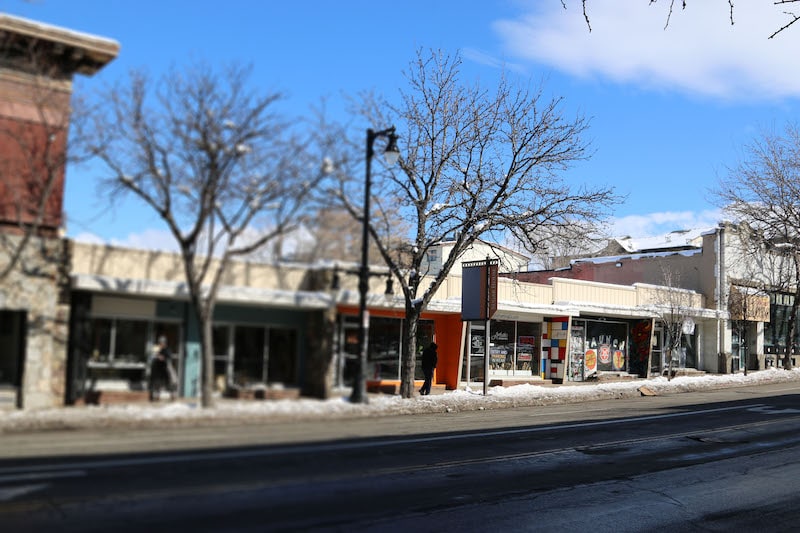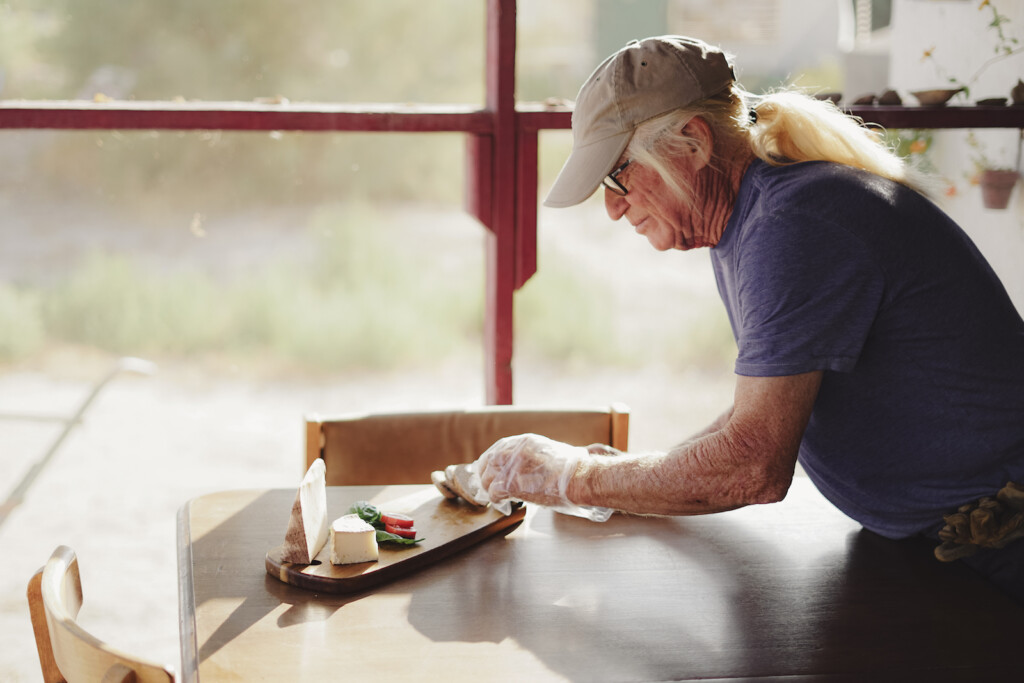Projected to span over the next four years, Sugar House will be experiencing a one-two punch of construction. First, Highland Drive will be getting a resurfacing that was supposed to begin at the end of February. This project will start at around 1700 South and new paving will go all the way to the 1-80 freeway overpass at around 2200 South.
Then, 2100 South will begin construction. For this project the city is doing a major street renovation including new infrastructure lines for sewer, electrical and gas. But the major contention is over the width of the sidewalks and final design to balance a new bike lane with the huge amount of traffic that the major artery accommodates.
The big question remains, could these punches mean a knock-out for some of Salt Lake City’s oldest, most beloved local businesses? Located right in the crosshairs of construction rest Utah’s oldest furniture store: Sterling Furniture; Utah’s oldest coin shop: All About Coins; One of Utah’s most beloved and oldest watch repair shops: Fankhauser Jewelry, and at least another half dozen flourishing local businesses such as Raunch Records and Artistic Frame Co. and more.

Fankhauser Jewelry has been a Sugar House mainstay for the past 81 years. Howard bought out Fankhauser Jewelry 11 years ago from the previous owner, Gary Davis, who bought it from the Fankhauser family in 1941. Howard says the area had been under construction since before he started.
“The traffic is hard to get to unless you’re already in Sugar House,” he explains. Howard experienced the negative effects of the changes, including losing a quarter of his traffic flow due to construction.
“If you lose 25 percent of your business, it’s kinda lousy … If the rent was offset because of the construction, then the twenty five matters a lot less because you can keep the doors open.”
Howard, however, is in a somewhat advantageous position as he says his trade can permit him to work at home, but that’s something of a last resort for him. And not every business owner has the possibility of remote work, such as Bob Campbell of All About Coins, who was willing to take a bolder approach to the construction.

“It will affect our business,” Campbell proclaims. “And it will probably make certain businesses go under after four years of construction.”
One of Campbell’s biggest concerns that would arise from this construction would be a median that would separate the east-bound and west-bound lanes.
“They say it’s going to be a little 8- to10-inch wide barrier to force people not to turn. I think the only way you can be friendly to businesses and also allow cars to come up and down freely and make it safer for everyone is just not to put up a divider in the road. It isn’t broken like they think it is.”
The mayor has elected to adjust the sidewalk and bicycle lanes to make them wider for those looking to use them as their main commute. Campbell’s 40-year history at the store has led him to believe that this approach is a bigger change than Sugar House residents will appreciate. “I remember when we used to have parking on the side before all the trees were installed. We had narrow sidewalks,” he says.
Campbell, a former cyclist, understands the logistics of making this move in favor of a more environmentally friendly strategy. From his experience as a cyclist, Campbell understands better than most the dangers that would come with the changes of this new construction. “With this particular road being as busy as it is, and trying to restrict it further, people will probably lose their lives. The city will become liable because these decisions weren’t thought through.”
Campbell is preparing to hopefully counter these results by starting a petition to reverse these effects and other projected consequences of the construction.
But some owners, like Brad Collins of Raunch Records, are experienced enough that they aren’t too worried about potential blockages to the entryways. He explains, “I don’t know if they’re gonna do 11th East … but they will come down 11th East past the post office over there for all the drainage. And then they’re going to do 21st pretty much right away, I think … My impression is that they’ll do both of these things while we’re open. So I’m thinking there will be some issues that way … “
Collins counters that when the time comes, “They’re going to have to leave an entrance, so they’ll do an entrance. I don’t know what they’re going to do on 11th East in terms of the lanes … they’re trying to put drainage in, really. Because at the post office, I heard that it pools up with a lot of water.”
Seeing how Raunch Records had been in business since 1986, there wasn’t much that was still uncharted territory for Collins, allowing him to be more prepared for new and unexpected changes.
But whether it’s because of the risk to cyclists, or simply finding the right crowd, the stores battling the construction have the longevity and concern to fight back and adapt to the upcoming changes regarding access to their businesses.






